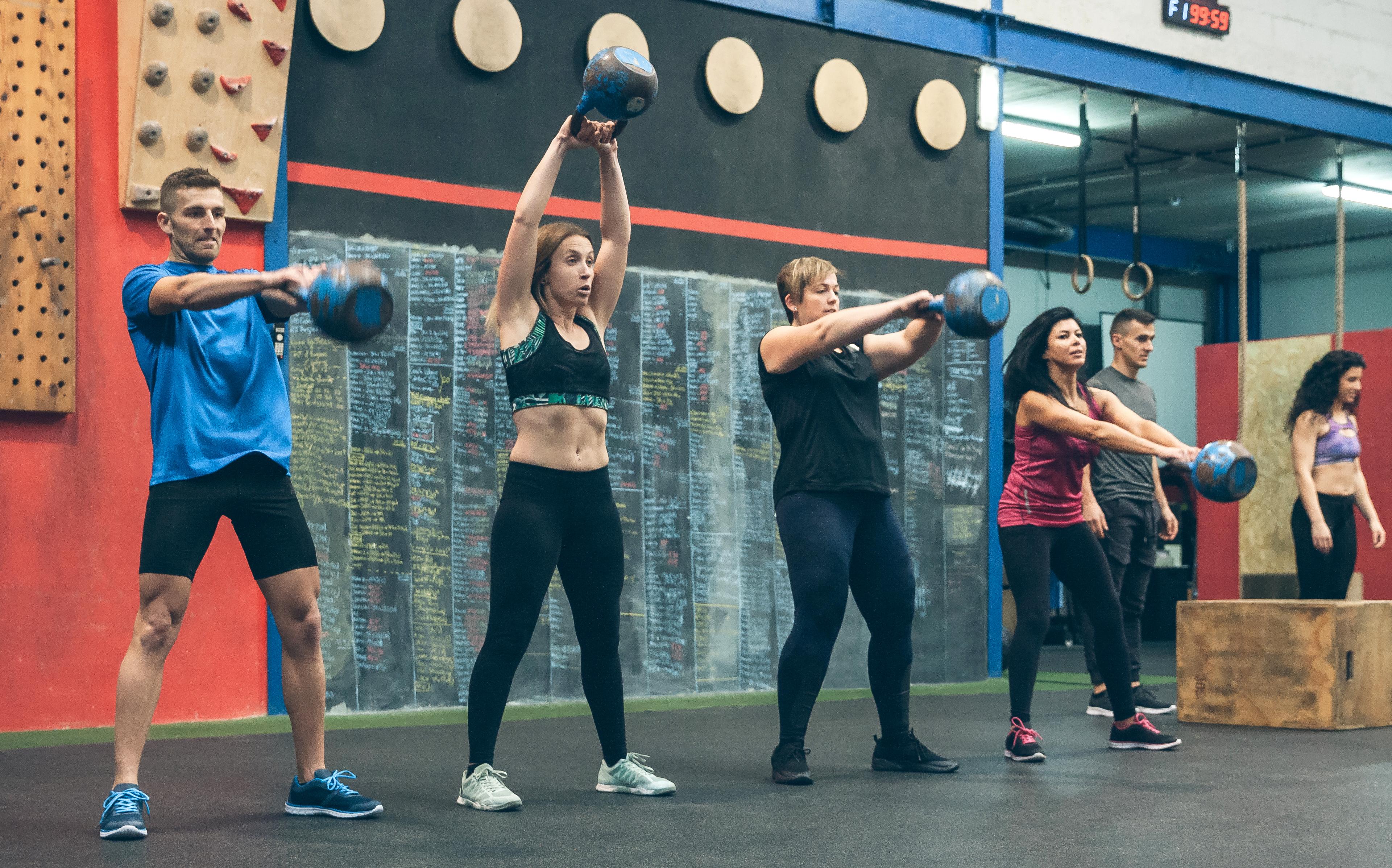Winning Pickleball Tournaments in their 70s: How the Sport Keeps Seniors Young
Amy Barczy
| 4 min read
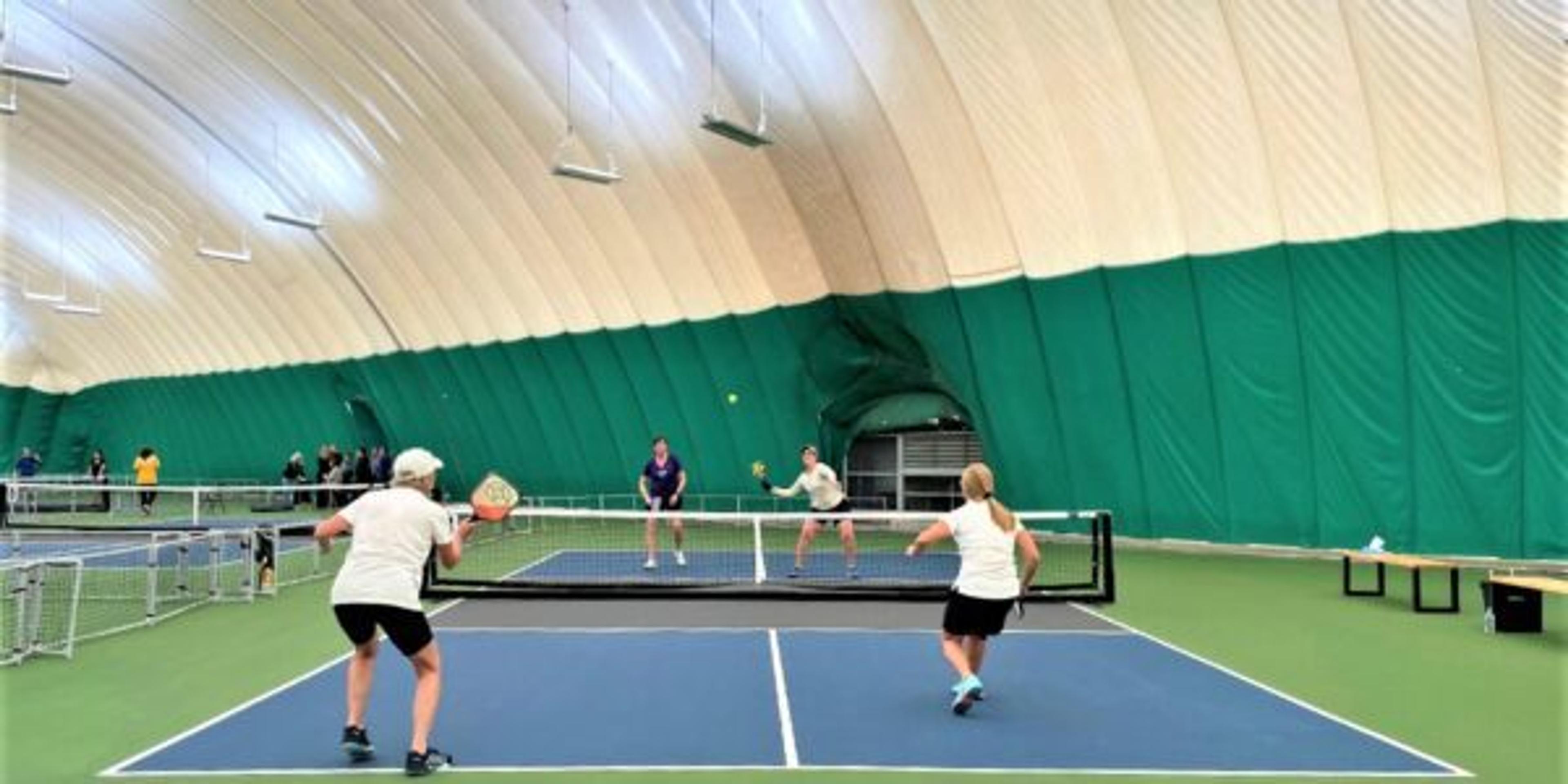
Seventy-five-year-old John Wilson and his doubles partners won eight straight games of pickleball in two days – no easy feat – earning them two gold medals from the Michigan Senior Olympics this March. But for Wilson, a Blue Cross Blue Shield of Michigan member, it’s not all about the win.
“It’s been good for my health,” Wilson said of how pickleball is both good for his physical and mental health, as he is caring for a sick loved one at home. “I don’t have to think about anything else.”
Wilson is among a growing number of people in the U.S. playing pickleball. The sport saw a surge in popularity in the pandemic that’s had staying power, especially among senior adults who are reaping the health benefits.
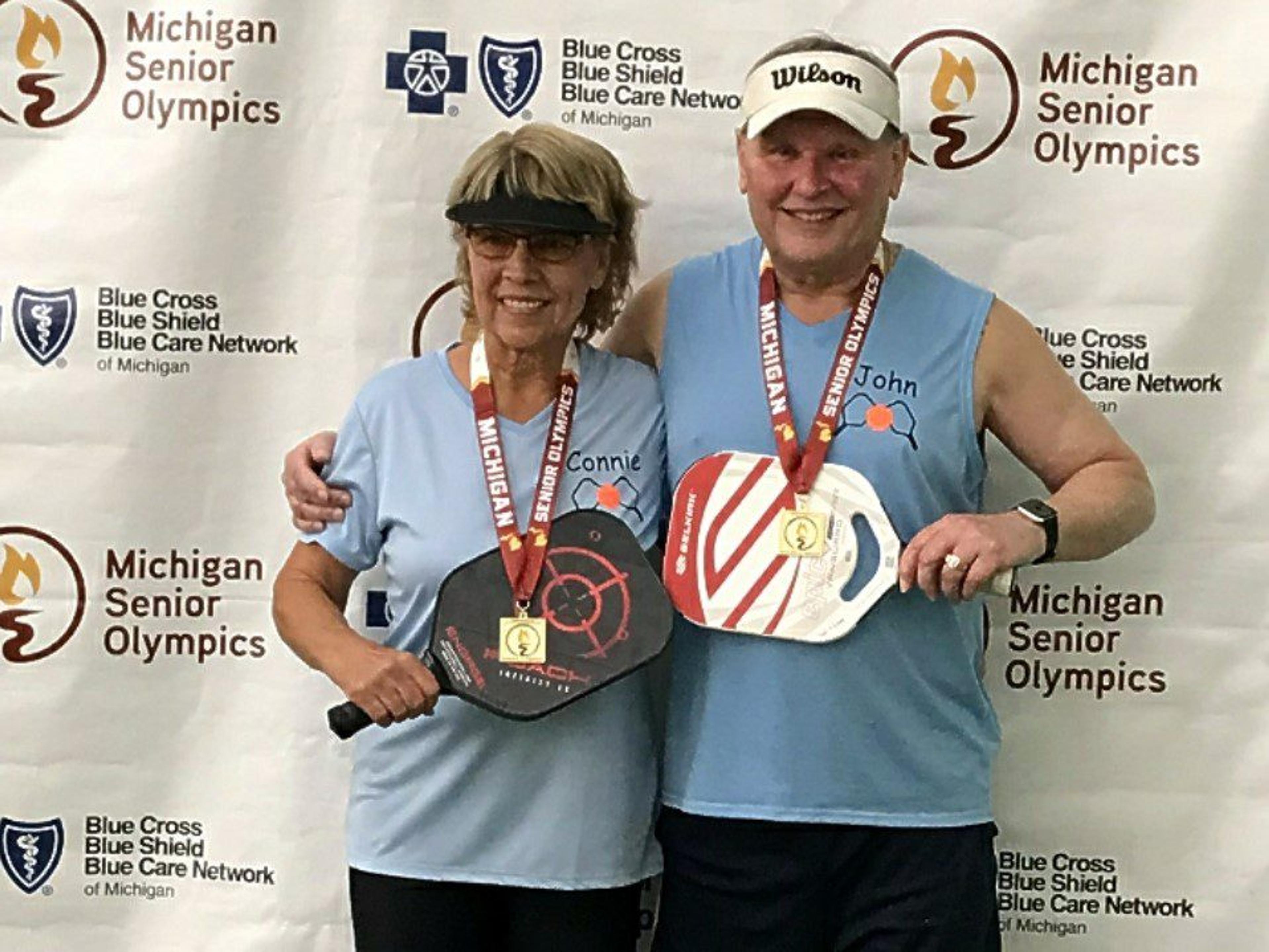
John Wilson, right, and his pickleball partner won gold in the March 2023 Michigan Senior Olympics.
The power of pickleball
More than 4.8 million people in the U.S. now play pickleball, according to the 2022 Sports & Fitness Industry Association Report. And the sport is especially popular among those 50+: among the 1.4 million “core participants” that play at least eight times a year, 60% are age 55 and older and 33.7% are 65 and older.
Pickleball is similar to tennis in that it’s played on a court – but the court is much smaller. Players use paddles – slightly larger than a ping pong paddle – and play with a wiffle ball. Because the wiffle ball doesn’t bounce on the ground in the way that a tennis ball does, it changes the dynamic of the game and makes rebounds less likely. Serves are underhand, and the sport can be played with singles or doubles. The design is for carefree, fun and social play. Matches take about 15 minutes.
Wilson, who lives in Macomb Township, exercises six times a week and has been playing pickleball for the last eight years. The former Marine Corps Reserve officer and retired high school biology teacher also teaches pickleball at recreation centers in Shelby and Macomb townships. He finds the sport can accommodate people of all ages.
“Young and old, men and women, can play competitively,” Wilson said. “It’s an equalizer sport.”
Health benefits of pickleball
Lorna Rose, 73, found pickleball during the pandemic. After pandemic precautions closed the racquetball courts on Belle Isle, Rose went looking for a new sport – and found a pickleball court she could bike to from her home in Tecumseh, Ontario.
A retiree of Ford Motor Company, Rose spends a lot of her free with her three sons and grandchildren, attending their hockey games. Rose loves the family-friendly nature of pickleball, and the friendships she’s made as a result.
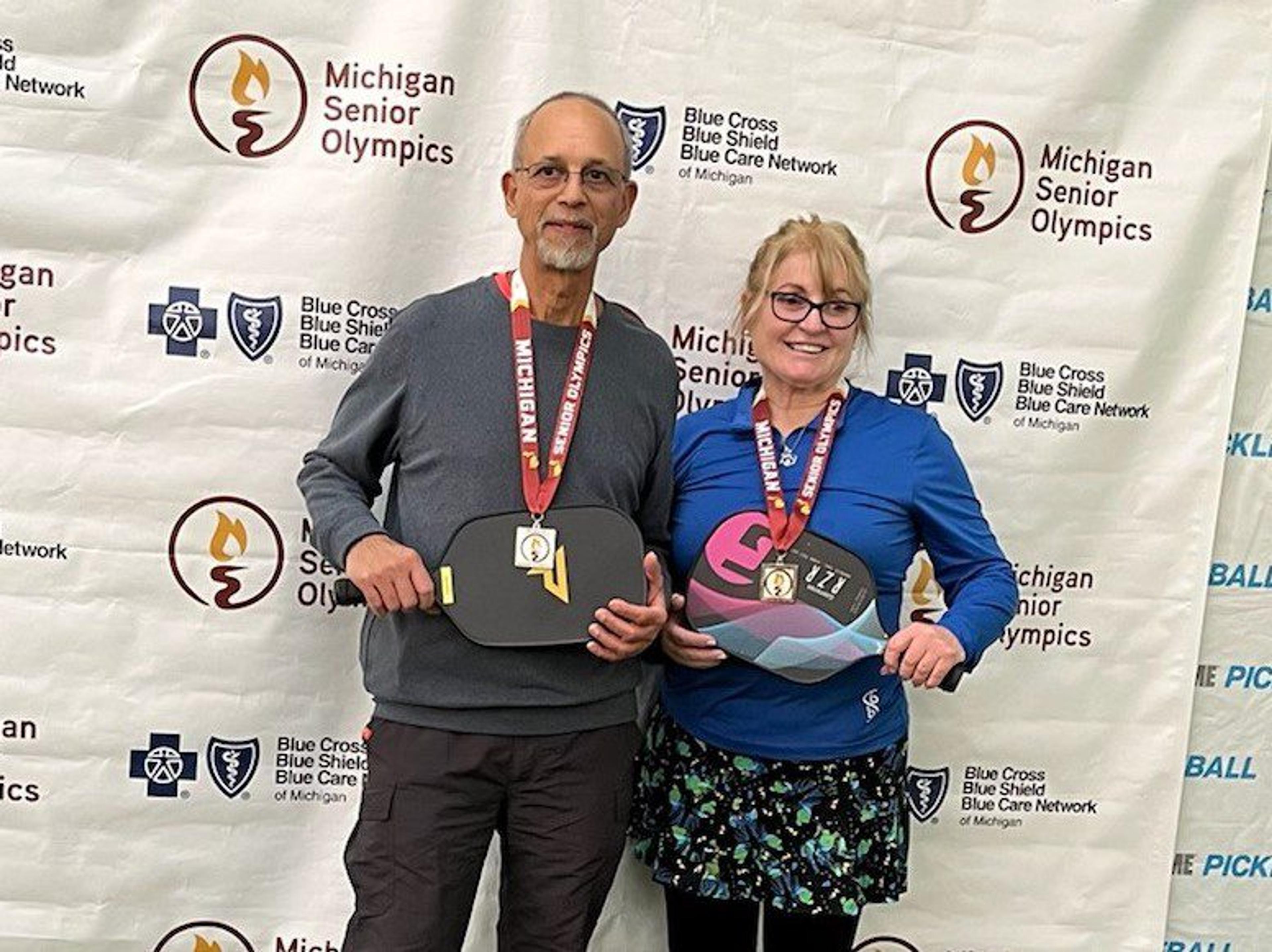
Lorna Rose, right, poses for a photo with her pickleball partner at the March 2023 Michigan Senior Olympics.
“It’s good for retirement, rather than sitting on the couch,” Rose said, explaining how she enjoys going out to eat with her pickleball friends after they play matches together. “It helps orient you with different groups of people, and helps you meet new people.”
Pickleball offers both physical and mental health benefits:
- Lowered risk of heart disease: One study found middle-aged and older adults who play one hour of pickleball three days a week improved their blood pressure, cholesterol and cardiorespiratory fitness over a six-week span.
- Lowered risk of depression: A study found older adults who played in pickleball tournaments had a lowered risk of depression.
- Increased consistency with physical exercise: A study found people were more consistently physically active when they played pickleball because they enjoy the sport so much – and the social connections keep them coming back.
- More socialization: Pickleball provides social connections that are especially beneficial to older adults. Regular social activity helps older adults with multiple aspects of their health – including improved quality of life and well-being, healthier behaviors and exercise.
- Improved reflexes and balance: Regular physical activity helps older adults improve their reflexes and balance. This can help them live independently longer.
Pickleball helps seniors stay active
For Avis Taylor, 75, of Detroit, pickleball of one of her many sports: basketball, volleyball, softball and bowling have kept her busy. Pickleball offers “a lot of activity and a lot of movement,” which Taylor finds more enjoyable than the high-intensity basketball games – and she gets to meet new people at the same time.
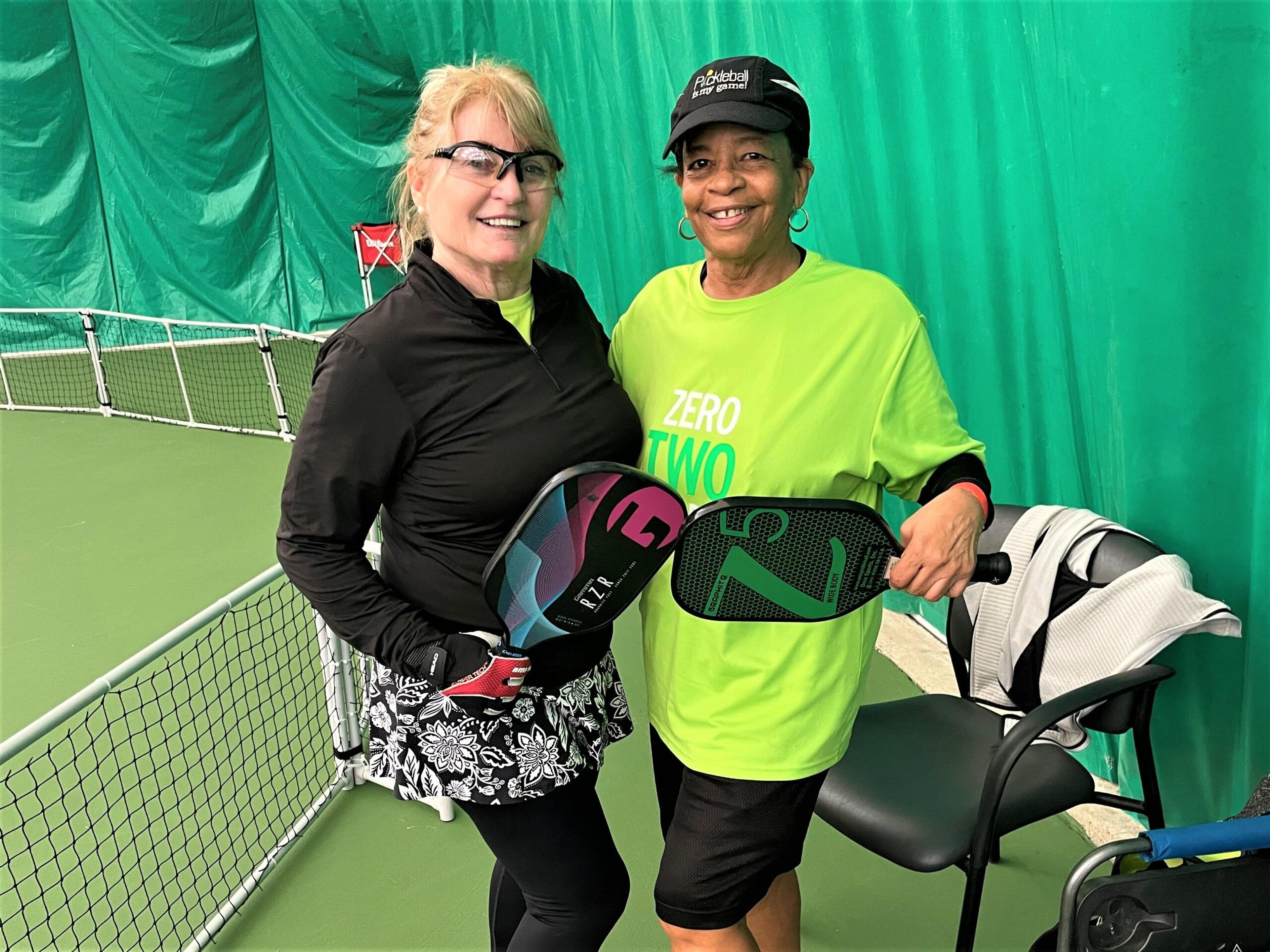
Lorna Rose, left, and Avis Taylor, right, pose for a photo at the March 2023 Michigan Senior Olympics.
Many seniors, like Taylor, transition to pickleball from another sport.
Butch Demara of Shelby Township was first introduced to pickleball when he was playing on a softball team in the National Senior Olympics in Utah several years ago. Now, he plays pickleball for two hours a day, five days a week at the Shelby Senior Center.
“There’s always someone you can compete with,” Demara said. “We don’t discriminate; we just win.”
This March, he won a silver medal in the men’s doubles competition in his first Michigan Senior Olympics pickleball tournament at the age of 81.
- Read more from A Healthier Michigan on how to stay healthy and fit.
Photo credit: Blue Cross Blue Shield of Michigan

